2022 was a year of rollercoaster emotions for many Tunisians, during which the country has endured tough economic conditions and political upheaval.
But sport helped bring some relief from everyday troubles.
Tunisia’s qualification for Qatar 2022 Fifa World Cup brought pride and joy to the country. But beating reigning world champions France wasn't enough to stop the team from going out before the knockout phase.
Meanwhile, Ons Jabeur — hailed as “Minister of Happiness” by fans — fought to second in the Women's Tennis Association global ranking, giving Tunisians a chance to dream again of sporting success.
Here's Tunisia's year in highlights:
Parliament dissolved after being suspended for eight months
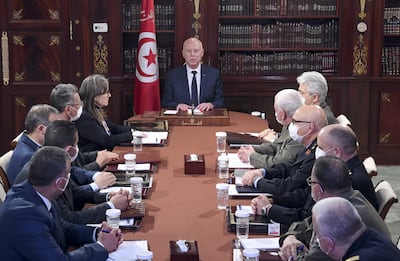
In March, President Kais Saied dissolved parliament, after suspending it for 8 months in a move he said was aimed at getting the country back on track.
The decision came after an online meeting conducted by members of the then-frozen parliament, who tried to restore parliamentary legitimacy. Mr Saied called the session “an attempted coup against the state”, in a speech broadcast on state TV on March 30.
“The state is targeted by a desperate coup attempt and my responsibility is to protect the state, its institutions and its people,” Mr Saied said.
New constitution
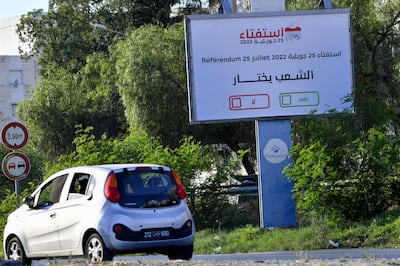
On the first anniversary of Mr Saied's consolidation of power without parliament, he called on the country to back his amended constitution in a referendum.
He said this was the first step towards establishing the political system he envisioned for Tunisia.
However, critics said it gave the President additional powers with weaker checks and balances.
The constitution passed with a turnout said to be just 30 per cent.
Opponents criticised the new constitution — both for the low turnout in the referendum by which it was passed and for the process through which its text was written.
After convening a commission made up of the country’s most respected constitutional law professors, Mr Saied disregarded the draft they put forward and personally rewrote the document put to the referendum.
This move made the president lose several key allies and advisers, leaving him more isolated.
Lowest ever election turnout
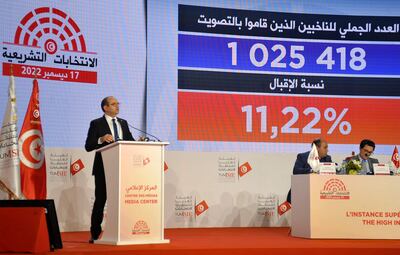
On December 17, Tunisia's political process made headlines — but not for the best of reasons.
Following the poor turnout at the constitutional referendum, the following parliamentary elections to select MPs under the new system saw the lowest turnout in the country's history.
Just 11 per cent of Tunisian voters cast their ballot on December 19, amid a growing sense of political apathy.
A second round is expected to take place in early 2023.
While the results were criticised by many observers, Tunisian president Kais Saied dismissed negative comments as “unreasonable and made up” by political opponents.
Francophonie summit

The 18th Francophonie Summit of countries and regions where French is spoken, was held on the island of Djerba on November 20 and 21, under the theme of Connectivity in diversity: digital technology, vector of development and solidarity in the French-speaking world.
It marked the beginning of Tunisia’s two-year presidency of the International Organisation of Francophonie.
The summit discussed the new challenges facing Tunisia and its partners in the wake of profound global change — including economic challenges following the pandemic and the war in Ukraine.
Ticad 8 and diplomatic crisis with Morocco
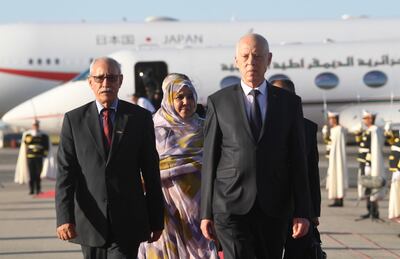
The Tokyo Summit for African Development (Ticad 8), which took place in Tunis on August 27 and 28, presented an opportunity for consolidating multilateral co-operation between Japan and the African Union, with Tunisia leading the way.
It concluded with the adoption of a joint statement that identified three pillars of co-operation between Japan and the African continent — achieving structural transformation for economic growth, building a resilient and lasting society and the premise of achieving lasting peace and stability.
The summit was marked by a diplomatic crisis with Morocco, after President Kais Saied invited Polisario Front head Brahim Ghali to attend. This was seen by observers as a show of support for the separatist group's long-held claim of Western Sahara and independence from Rabat.
Brief World Cup dream
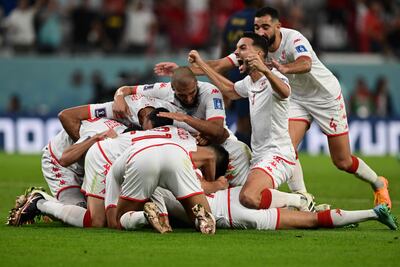
In March, Tunisia's national football team qualified for the 2022 Qatar World Cup — their second in a row, and the sixth time the country has reached the finals since the 1978 tournament in Argentina.
The World Cup brought an opportunity for renewed hope and a long-lost sense of national solidarity.
However, the Carthage Eagles' dreams of advancing to the knockout stages ended when they finished third in Group D, just pipped by Australia — despite a final 1-0 “revenge win” against former colonial power France.
Ons Jabeur elected 'Minister of Happiness'
However, Tunisia’s very own “Minister of Happiness” — tennis star Ons Jabeur — helped put a smile on the faces of the country's sports fans.
She made tennis history after becoming the first Arab and African player to reach a Grand Slam final in tennis’s history. In fact, Jabeur reached two in 2022 — Wimbledon and the US Open.
While she was runner-up in both, Jabeur made tennis Tunisians’ favourite sport, as people of all ages swarmed to cafes to watch her matches, and children signed up for lessons to try to follow in her footsteps.
Jabeur became the embodiment of the phrase “the impossible is not Tunisian” and enshrined Tunisian pride with her sportswoman ethics and subtle sense of humour.
From bread to petrol, the year of shortages

Tunisia could not escape the grip of economic downturn in 2022, evident in long queues at supermarkets, bakeries and petrol stations, as basic commodities became unavailable or soared in price.
From bread, sugar, coffee and milk to petrol and medicine, the country struggled to provide its citizens with their basic human needs.
Beleaguered Tunisians were left to wonder what staple item would disappear next.
Driest year since 1950
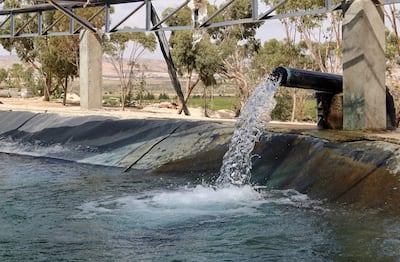
On December 21, Tunisia’s National Centre for Meteorology announced that the country has witnessed its driest summer since 1950, putting the country on the verge of a water scarcity crisis.
Zarzis migrant boat tragedy

A boat carrying migrants to Europe sank in September while carrying 18 people.
Anger drove residents of Zarzis, in southern Tunisia, on to the streets in protest, after authorities buried drowned migrants from the coastal city without informing families or attempting to identify some bodies.
Families of the missing said the government has done nothing to ease their anguish. Protests in the city continue, as residents remain overwhelmed by the tragedy and continue to seek the truth.
The incident shocked Tunisians and highlighted the migrant crisis that Tunisia has been witnessing since the 2011 uprising that ousted long-time president Zine El Abidine Ben Ali.
Tunisians of all ages continue to attempt the hazardous Mediterranean crossing to seek better economic prospects.

